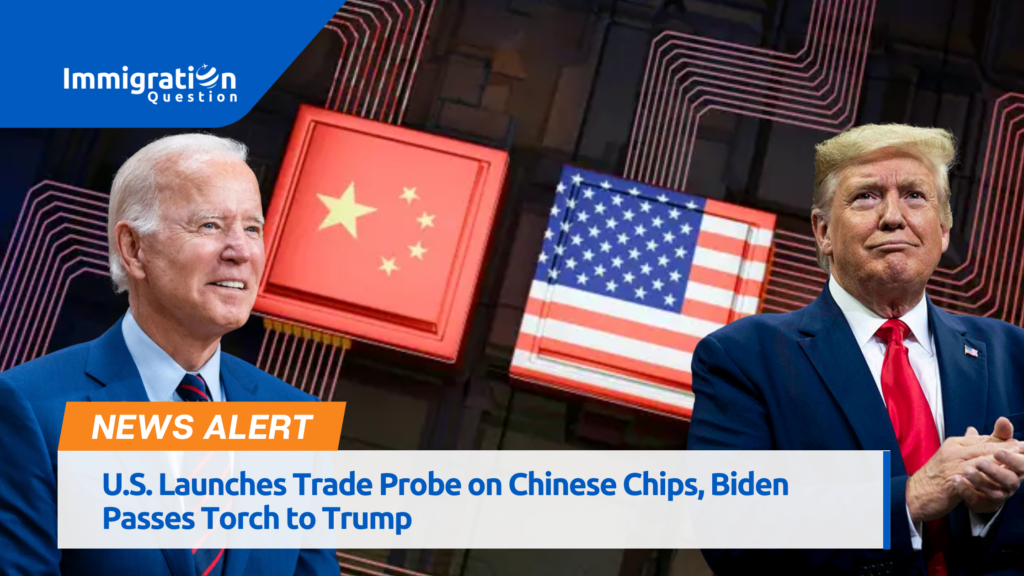US Trade Probe on Chinese Chips, Biden Passes Torch to Trump
The Biden administration announced a new trade investigation targeting older Chinese-made semiconductors, known as “legacy” chips. These semiconductors are integral to everyday products, from automobiles to home appliances and telecommunications equipment. This probe could pave the way for additional U.S. tariffs on these chips, further intensifying trade tensions between Washington and Beijing.
Protecting Domestic Semiconductor Producers
U.S. Trade Representative Katherine Tai explained that the investigation aims to shield American and allied semiconductor manufacturers from China’s extensive state-driven chip production. She asserted that China’s strategy is designed to dominate the global semiconductor market by expanding capacity and undercutting competitors with artificially low prices. The investigation, initiated under Section 301 of the Trade Act of 1974, will examine whether China’s practices harm market-oriented competition.
China’s commerce ministry has dismissed the probe as protectionist, arguing it could hurt U.S. businesses and disrupt global chip supply chains. The ministry vowed to take “all necessary measures” to protect its rights and interests.
Public Input and Hearing Scheduled
According to a Federal Register notice, the investigation will allow public comments beginning January 6, with a hearing set for March 11-12. Officials expect the probe to conclude within a year. This inquiry comes as the U.S. seeks to reduce reliance on Chinese semiconductors, especially after the COVID-19 pandemic exposed vulnerabilities in global chip supply chains.
Jason Oxman, President of the Information Technology Industry Council, urged for an impartial and collaborative approach, emphasizing the complex and far-reaching implications of the probe.
Focus on Downstream Products and Industries
The investigation will scrutinize imported chips and their use in downstream components and end-use goods critical to defense, automotive, and medical devices. Additionally, it will target China’s production of silicon carbide substrates and wafers essential for semiconductor fabrication.
U.S. Commerce Secretary Gina Raimondo highlighted alarming findings from recent research. Two-thirds of U.S. semiconductor products contained Chinese legacy chips, and many companies were unaware of their origin—a concern particularly relevant to national security.
Strengthening U.S. Semiconductor Supply Chain
The U.S. has ramped up efforts to establish a robust domestic semiconductor supply chain. The CHIPS Act allocated $52.7 billion for chip production, research, and workforce development. Legacy chips, though less advanced than those used in AI and high-performance computing, remain vital for numerous industries.
Outgoing President Joe Biden had already implemented a 50% tariff on Chinese semiconductors, effective January 1, and tightened export controls on advanced chip technologies. This groundwork could facilitate further trade measures by the incoming administration.
Looking Ahead – U.S. Launches Trade Probe on Chinese Chips, Biden Passes Torch to Trump
As the U.S. navigates this trade investigation, it faces the dual challenge of addressing national security concerns and maintaining stability in global supply chains. The outcome of this probe could shape semiconductor policies for years to come, with implications for industries relying on these critical components.
The global technology ecosystem will be closely watching for policy shifts as the investigation unfolds.
To stay updated and informed, watch our news section or drop your immigration queries on immigration question and get responses from professional attorneys.










